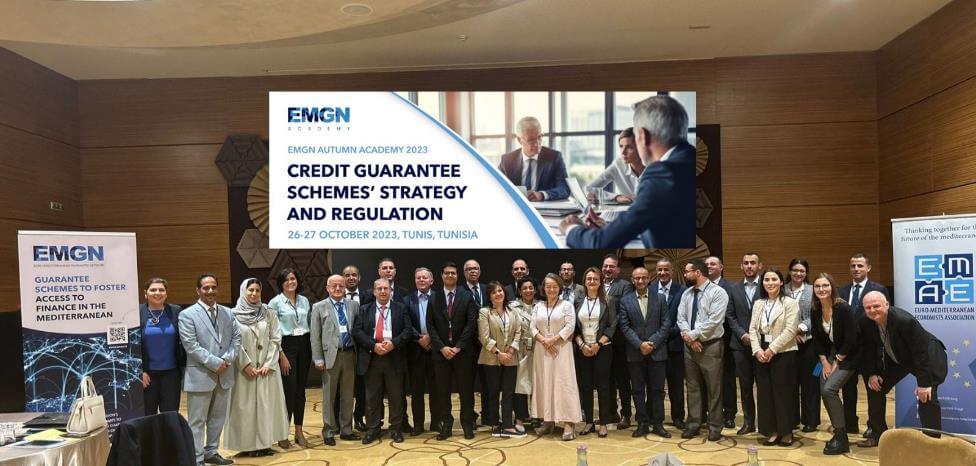
Posted on November 1, 2023
The EMGN Autumn Academy 2023 “Credit Guarantee Schemes’ Strategy and Regulation” took place in Tunis on the 26-27 October 2023, organised by the Euro-Mediterranean Guarantee Network (EMGN), led by the Euro-Mediterranean Economists Association (EMEA), in collaboration with Center for Banking Research of Bayes Business School, and the United Nations Economic and Social Commission for Western Asia (ESCWA), as part of the EMGN activities in the field of peer-to-peer learning and capacity development.
The EMGN Autumn Academy 2023 took place back-to-back with the 7th International MENA Guarantee Conference “Guarantee Institutions: Decades of Activity; Realities and Challenges” which was organised by the Tunisian Guarantee Company Sotugar in collaboration with the Euro-Mediterranean Guarantee Network (EMGN) and the Arab Guarantee, and took place in Tunis, on 24 – 25 October 2023.
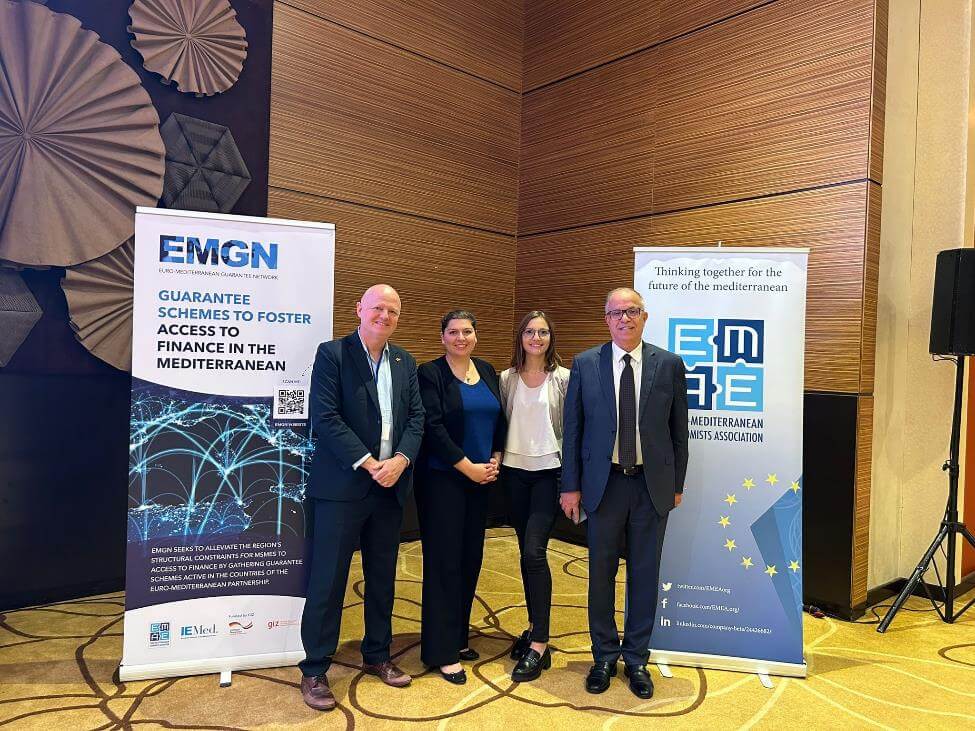
The main aim of this academy was to share knowledge and good practices among Credit Guarantee Institutions (CGI) from South, East, and North Mediterranean partner countries around two main topics; regulation and greening strategy for CGIs.
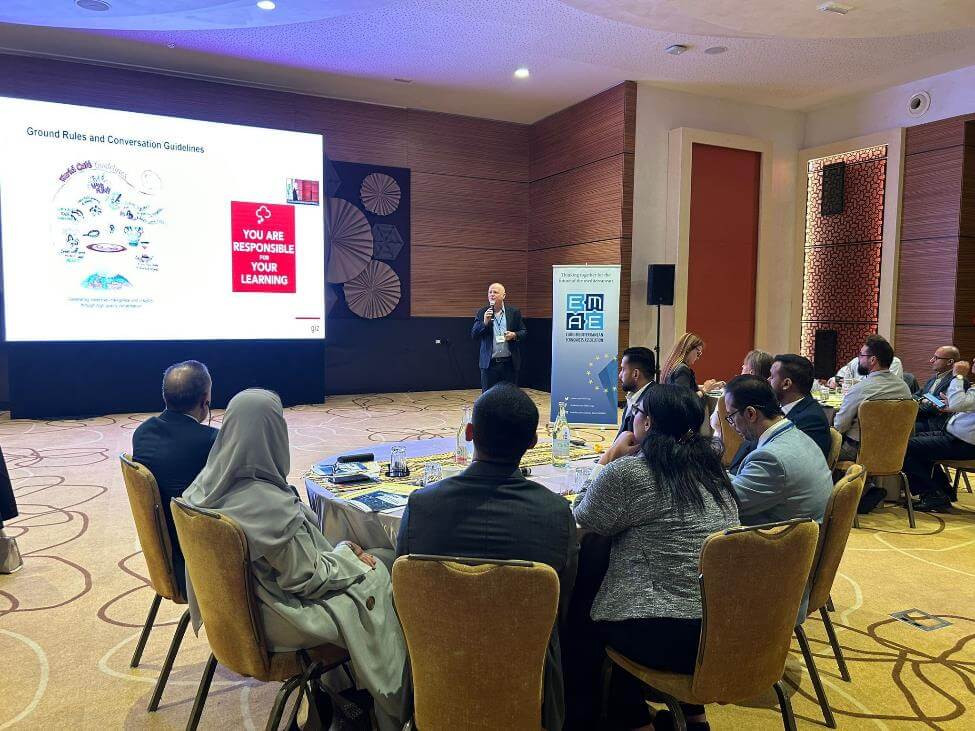
On-site were present 27 Members of EMGN and external participants and associates incliudeing representatives for Tamwilcom Morocco, Sotugar Tunisia, CGC Egypt, Kafalat Lebanon, CGCI Algeria, bpifrance, as well as associates guarantee organisations from Kafalah Saudi Arabia, AECM, and guests from CGF Libya, Expertise France, FGAR Algeria, YLG Yemen, Qatar Development Bank, and AIS Group.
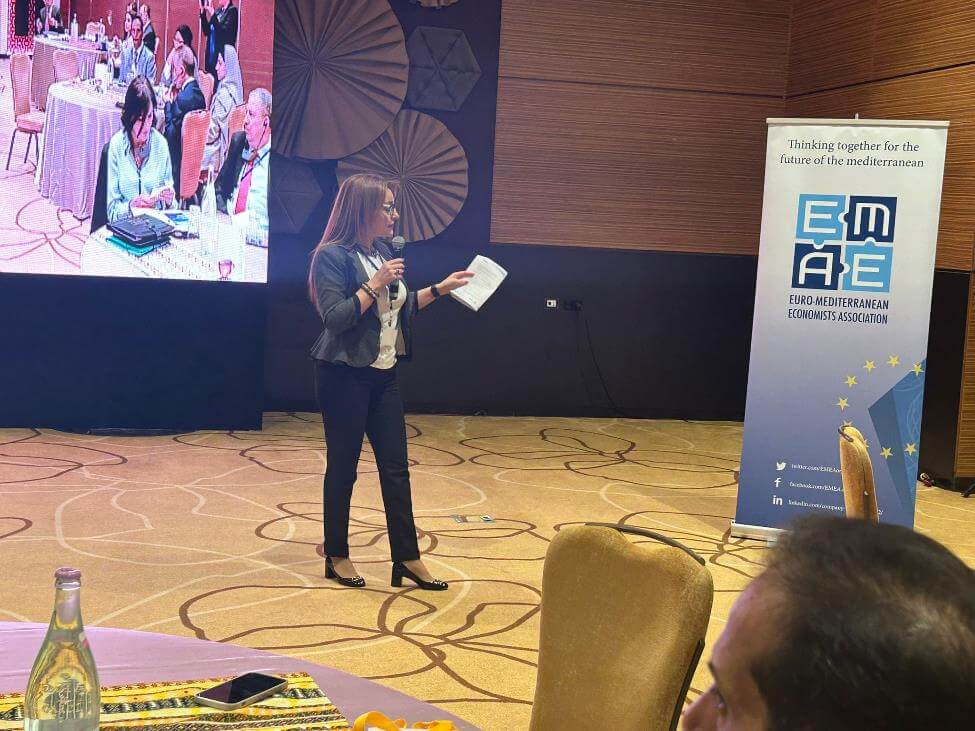
The Academy opened with an introduction by Nagla Bahr, Managing Director of CGC Credit Guarantee Company in Egypt and Chairwoman of EMGN and a welcome speech by Tahar Ben Hatira, CEO of Sotugar, followed by a welcome Address by EMEA President Prof. Rym Ayadi and the introduction to the Academy by the event moderator, Jost Wagner, Managing Director of the Change Initiative.
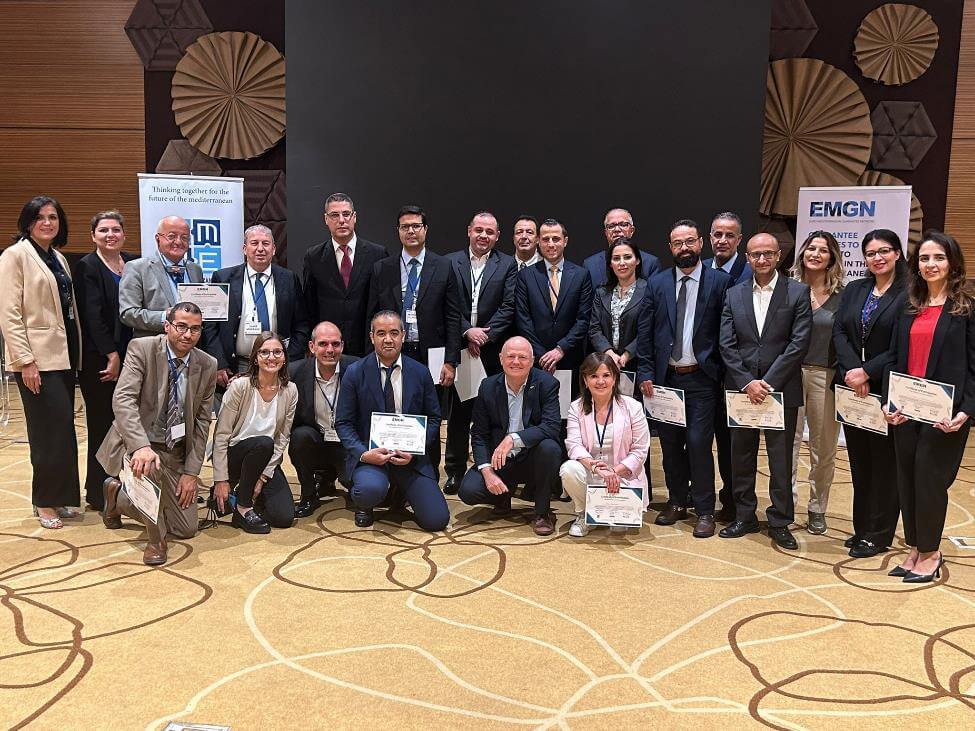
The EMGN Academy is promoted by the Euro-Mediterranean Economists Association (EMEA), the European Institute of the Mediterranean (IEMed) and the Deutsche Gesellschaft für Internationale Zusammenarbeit (GIZ). The Autumn Academy, was organised by the Euro-Mediterranean Economists Association (EMEA), Co-hosted by Société tunisienne de Garantie (SOTUGAR)-Tunis, and facilitated by the Change Initiative.
The EMGN Academies are carried out as part of a project financed by the German Agency for International Cooperation (GIZ) commissioned by the Government of the Federal Republic of Germany, namely: “Innovation Fund Jobs through Trade and Investment in the Southern Neighbourhood of the EU”.
Key highlights from the EMGN Autumn Academy training workshop:
- It is key for CGIs to consider the tradeoff between long-term viability and supporting the maximum number of SMEs. Key factors for CGIs risk management include; firm eligibility, coverage ratio, risk sharing order, leverage ratio, and financial sustainability.
- Measuring Key Risk Indicators aligned with regulation (Basel and IFRS9) help in decision-making to guarantee optimal leverage and thereby maximize financial and economic additionality of guarantee institutions.
- The CGSs have been introduced to the general treatment of financial guarantees under IFRS9 and the various categories of recognition and management.
- Financial institutions are legally required to comply with Anti-Money Laundering (AML) regulations and they usually employ a risk based approach to control for financial crimes and money laundering, which includes identifying high risk sectors, people, and countries. It is important for CGSs to understand their clients and comply with the due diligence standards to avoid legal and reputational issues.
- Balancing stability and sustainability in banking and guarantee schemes presents intricate trade-offs. Maintaining public trust through stability is vital, yet so is addressing environmental, social, and governance concerns to safeguard reputation and role in society.
- Guarantee institutions can play a significant role as catalysts for the sustainable transition, by facilitating environmentally responsible projects.
- Climate change in the Arab region is expected to have a significant impact on people and productive sectors. Hence, It is important to articulate climate finance needs and flows to Arab States in strategic sectors, which will identify climate finance gaps, challenges and where de-risking may assist to mobilize domestic and international resources.
- Selecting the right environmental Key Performance Indicators (KPIs) is a crucial step to accelerate green transition. The choice of these indicators demands careful consideration to strike a balance between providing meaningful insights without overwhelming reporting efforts and to prevent the proliferation of greenwashing.
- Funding projects associated with sustainable “transition” tends to be inherently more intricate compared to financing initiatives focused solely on climate change “mitigation”. Guarantee institutions play a pivotal role in bridging this complexity gap, thereby actively contributing to a more environmentally responsible future
- In today’s dynamic business landscape, Environmental, Social, and Governance (ESG) considerations are no longer optional; they are essential for long-term success and resilience. Hence, it is essential for CGSs to integrate ESG principles into their operations, and effectively communicate their efforts through reporting.
- CGSs can perform impact or additionality assessment in order to demonstrate that their intervention is both relevant and efficient.
The EMGN Autumn Academy 2023 reached an overall satisfaction of 4.5/5, and the topics presented by EMGN speakers received an average satisfaction rate of 4.1/5 from participants.
Link to EMGN Autumn Academy 2023 booklet


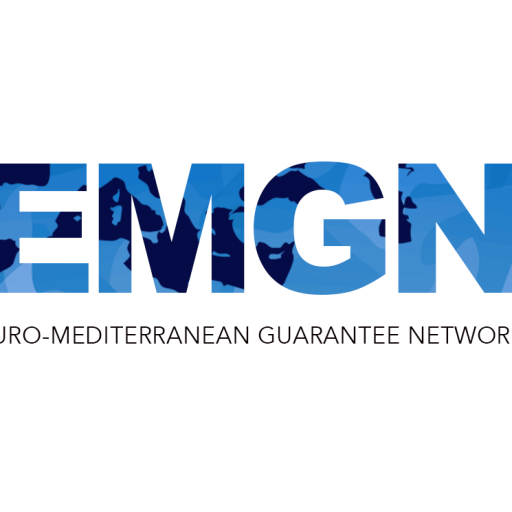
About The Author: Emgn_admin
More posts by emgn_admin